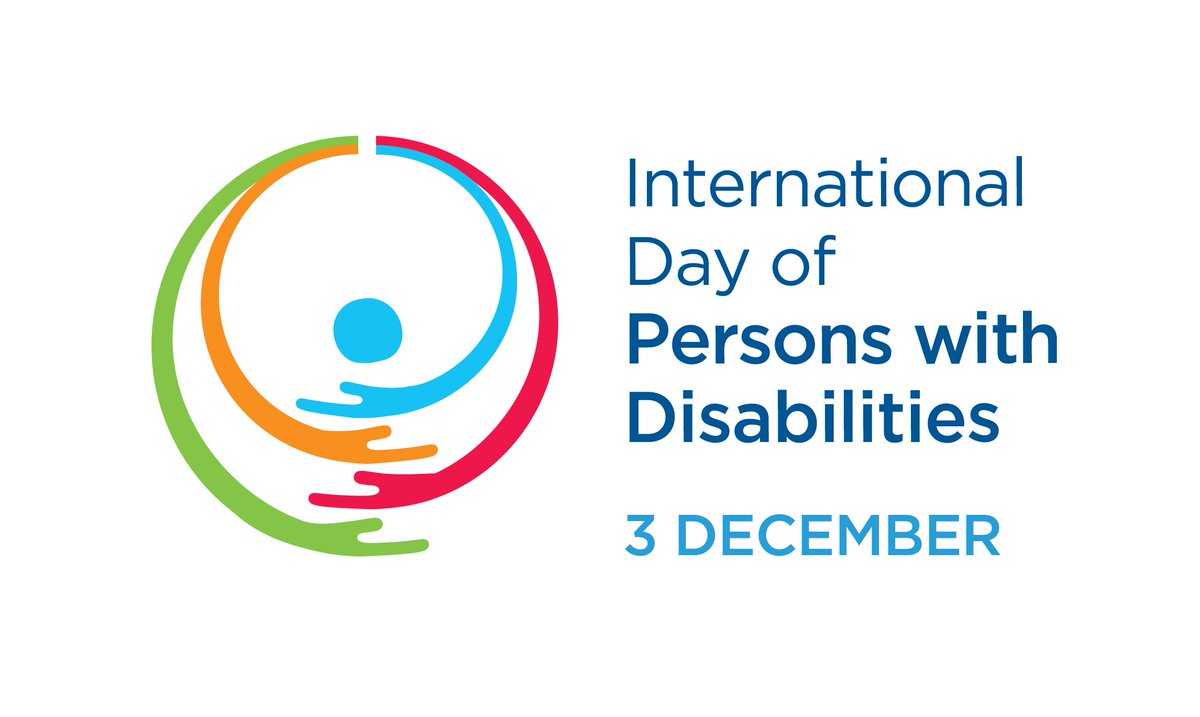In conjunction with the United Nations, the Kessler Family and the Kessler Foundation, My Blind Spot is proud to announce our full support of and participation in this year’s International Day of Persons with Disabilities! Global dignitaries, governments, organizations and leaders of the disability movement will come together to discuss and investigate solutions that are innovative and actionable to ensure full integration of people with disabilities into our social and corporate cultures. This consortium of global movers and shakers will engage in meaningful and actionable dialogue that results in authentic inclusion and integration of people with a disability into our schools, our workforce and our communities. My Blind Spot works to ensure that people with disabilities are valued and capable contributors to global outcomes. #DontDisMyAbility
What is the International Day of Persons with Disabilities?
Since 1992, the United Nations International Day of Persons with Disabilities (IDPD) has been annually observed on 3 December around the world. The theme for this year’s IDPD is “Empowering persons with disabilities and ensuring inclusiveness and equality”. This theme focuses on the empowering persons with disabilities for the inclusive, equitable and sustainable development envisaged in the 2030 Agenda for Sustainable Development.
The 2030 Agenda, pledging to “leave no one behind,” is an ambitious plan of action of the international community towards a peaceful and prosperous world, where dignity of an individual person and equality among all is applied as the fundamental principle, cutting across the three pillars of the work of the United Nations: Development, Human Rights and Peace and Security. It is critical to ensure, in this regard, the full and equal participation of persons with disabilities in all spheres of society and create enabling environments by, for and with persons with disabilities.
The 2030 Agenda places great importance on issues related to sustainable urbanization, particularly in Goal 11: make cities and human settlements inclusive, safe, resilient and sustainable. There can be no sustainable development without sustainable urban development. The UN Conference on Housing and Sustainable Urban Development (Habitat III), held in Quito, Ecuador in 2016, recognized the importance of adopting a smart-city approach that makes use of opportunities from digitalization, clean energy and technologies, as well as innovative transport technologies, thus providing options for inhabitants to make more environmentally friendly choices and boost sustainable economic growth and enabling cities to improve their service delivery.
This year, the Secretary-General of the United Nations is launching a first-ever flagship report on disability and development UN Flagship Report on Disability and Development | 2018 – Realizing the SDGs by, for and with persons with disabilities, The Report provides an evidence base for disability-inclusive policy-making, implementation and monitoring and evaluation of an inclusive, accessible and sustainable global development agenda. The commemoration of the International Day of Persons with Disabilities at UN Headquarters will bring together Member States, UN entities, Mayors, national and local policy makers, civil society organizations, academic institutes and organizations of persons with disabilities to discuss the way forward for inclusive, equitable and sustainable development, in conjunction with the launch of this Secretary-General’s Flagship Report on Disability and Development to be issued as part of the commemoration of the Day.
We hope you’ll join My Blind Spot in supporting authentic inclusion and digital equity for all by sharing this post with your friends and colleagues on social media with your thoughts about what it means to be truly inclusive.
Join the A-TEAM: Ability – Together Everyone Achieves More!
Let’s make the 2018 International Day of Persons with Disabilities one to remember.
Read the original article about the IDPD on the UN website
Fair Use Notice:
In accordance with section 107 of the US Copyright Law, My Blind Spot provides reformatted copyrighted articles – or portions of articles – found on other websites to ensure they comply with regulations governing authentic inclusion and digital equity for people with a disability. The reformatting of these digitally inaccessible copyrighted materials constitutes Fair Use of the same in accordance with the law. Reformatting the articles shared to our membership may not have the full consent of the copyright owner, but My Blind Spot is exercising the disability community’s right to accessible, usable and functional digitized communications and information. This approach not only serves to inform and educate the disability community but serves to educate organizations distributing digitized communications and information about the regulations governing digital equity and authentic inclusion for all people. My Blind Spot advocates for the implementation of accessibility regulations, standards and guidelines, consistently applied when designing and developing digitized publications, articles and communications. In accordance with Title 17 U.S.C. Section 107, My Blind Spot in its capacity as a formal nonprofit, believes the distribution of such materials is within the parameters of the law for educational purposes devoid of profitability. Use of any copyrighted materials found on the MyBlindSpot.org website for any other purpose which goes beyond Fair Use guidelines, requires authorization and permission from the copyright owner.
